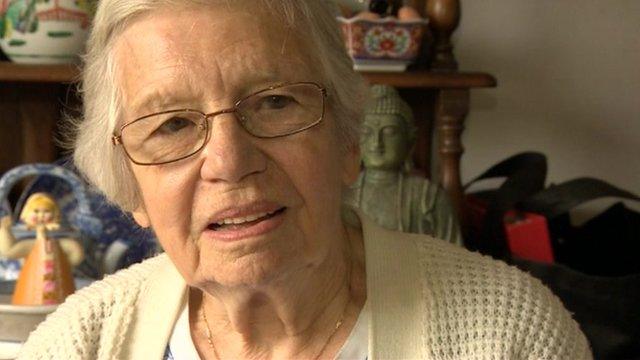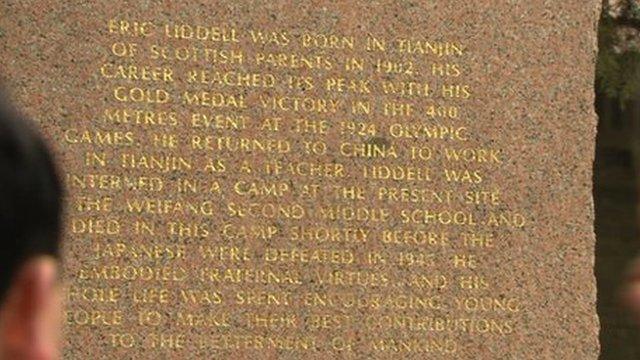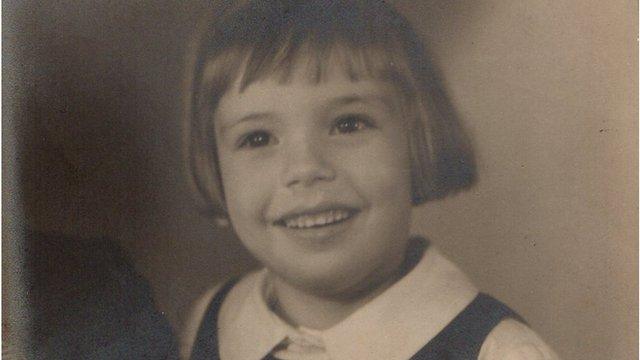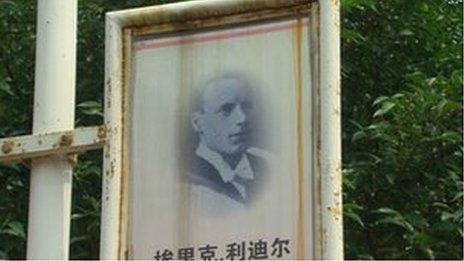VJ Day: I thought WW2 camp 'was a dream'
- Published

Maddie Bowler was in Weihsien for two and a half years, from the age of seven
A woman who spent part of her childhood in a Japanese World War Two internment camp grew up thinking it was a "dream".
Maddie Bowler, whose father was in the Navy, was born in China and taken to Weihsien when she was seven.
Following her release from the camp in China her father told her it had been a "bad dream" and not to talk about it.
It was only as an adult when she saw a programme on Olympian Eric Liddell, who died at the same camp, that she realised "it was real".
'Uncle Eric'
The story of Mr Liddell - the son of Christian missionaries who famously refused to run on a Sunday during the 1924 Paris Olympics - was told in the 1981 film Chariots of Fire.

A memorial stone stands in the grounds of the camp where Eric Liddell died
Born in China, he remained in the country after Japan invaded to carry on his missionary work. He was interned in 1943.
Great grandmother Mrs Bowler, 80, who lives in Somerset, knew him as "Uncle Eric" who taught maths, organised sports and visited her when she contracted scarlet fever.
Her memories of Weihsien, a civilian internment camp, were positive.

Maddie Bowler before she was interned
She said: "It was normal life, I can't remember any horrors."
She remembers Americans parachuting into the camp as it was liberated, but she added: "I was sad because I was leaving the security of this little compound and all my friends... I wanted to go back 'home'."
Her mother had died when she was four and she had thought her father had been killed in the war. But he had not - and she was sent to Singapore to meet him.
But she was not allowed to talk about Weihsien.
She said: "My father said I was to forget it, it was all a bad dream."
She arrived in England, aged 13, and said: "Nobody wanted to know."
But in her forties, she saw a programme about Eric Liddell: "It was mentioned about him dying in the camp and I thought: 'Ah, it wasn't a dream - it was real, wasn't it?"
The Royal British Legion member will be marking Saturday's 70th anniversary of VJ Day - when World War II ended after Japan's surrender in 1945 - at a 1940s' dance.
She added: "I'm glad in a way that they are taking more notice now because it was a forgotten war."
- Published22 July 2012
